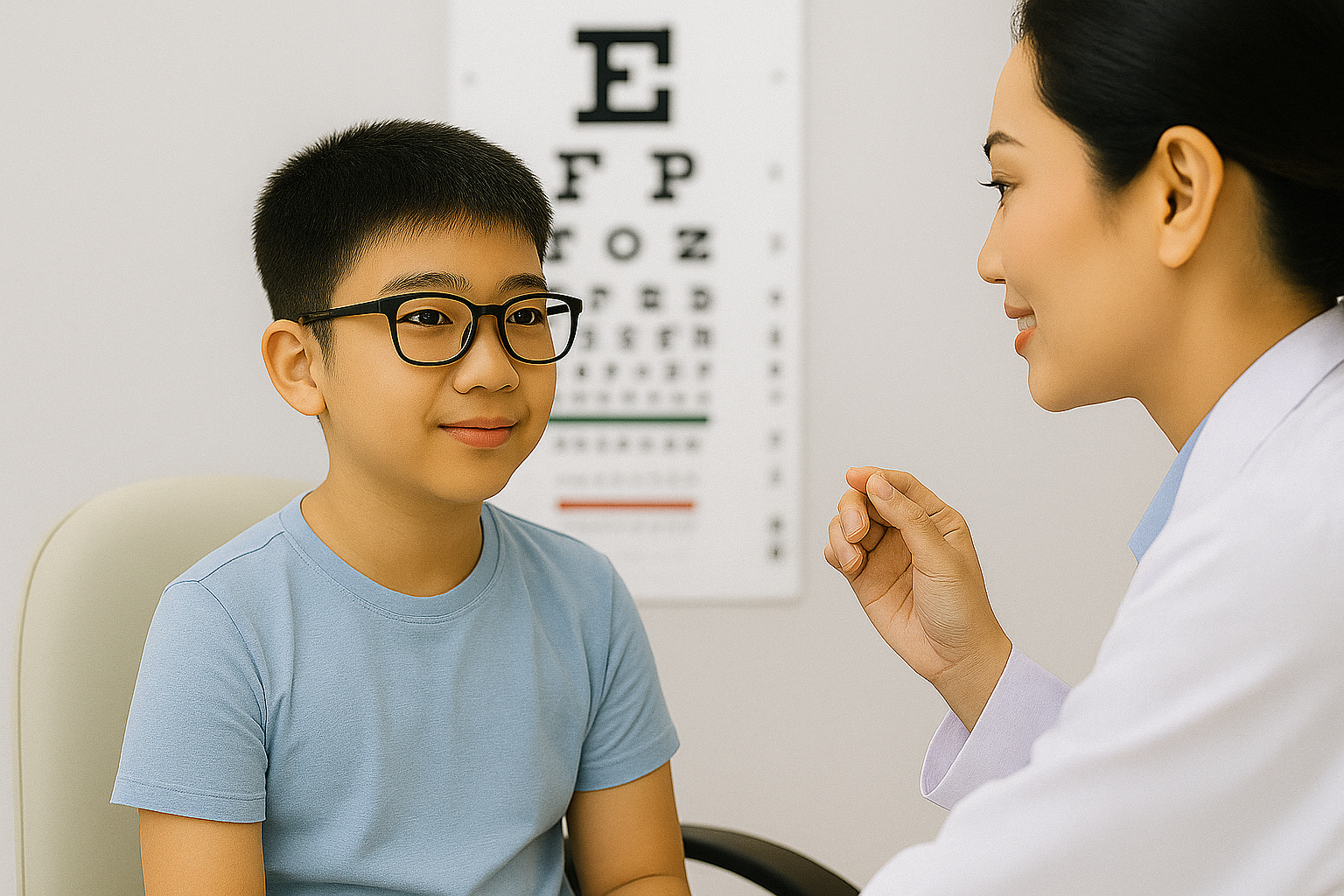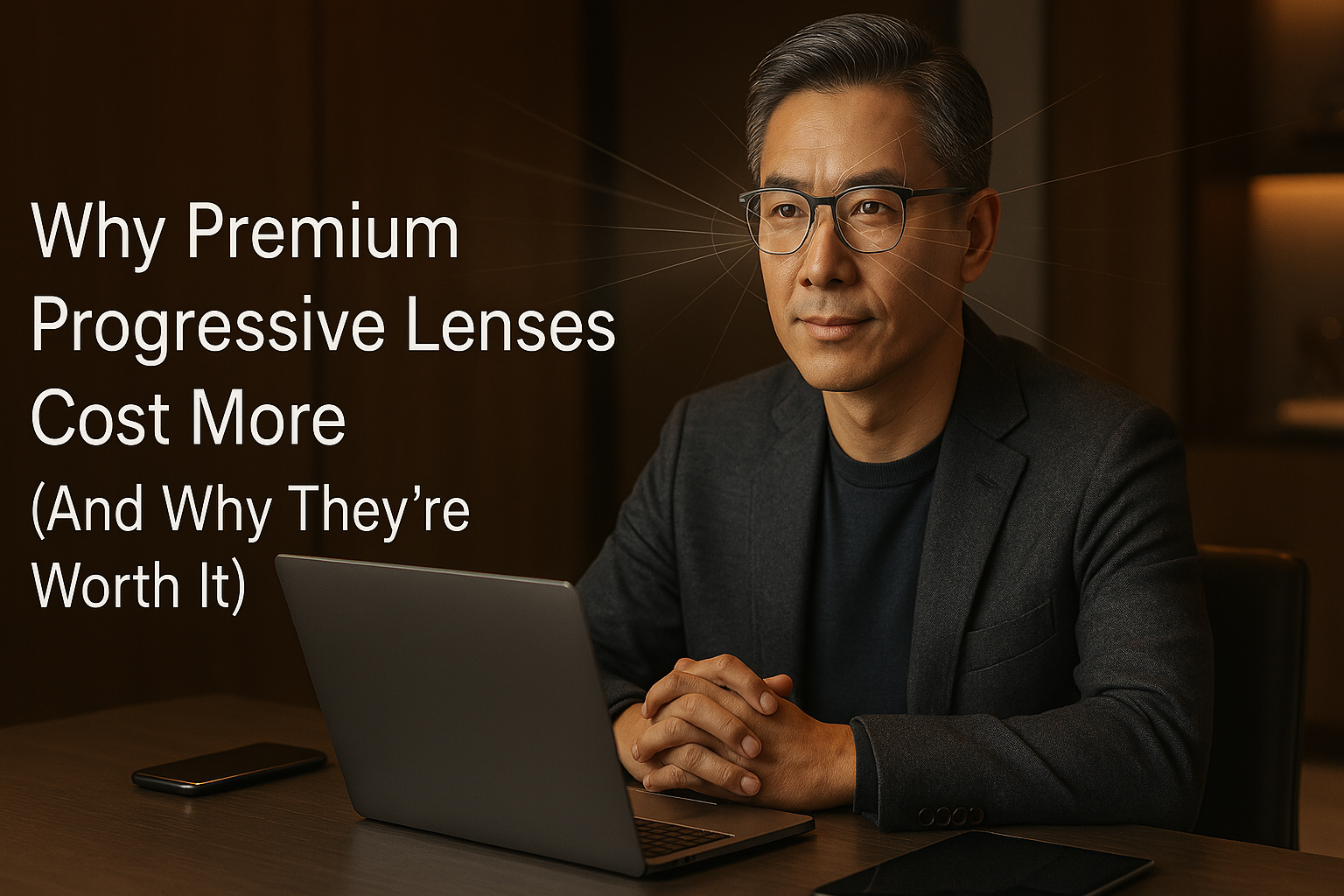Are you tired of constantly removing your glasses to read or switching between multiple pairs of glasses during your day? Do you find it difficult to maintain an active lifestyle with presbyopia? If your answer is yes, then we have the perfect solution for you -
progressive lenses! These innovative lenses offer a seamless transition from near to far vision, making them ideal for anyone who needs clear and comfortable vision at all distances. In this blog post, we will explore why progressive lenses are the best choice for those with an active lifestyle and presbyopia. So sit back, relax and get ready to discover how these game-changing lenses can transform your daily routine!
What is Presbyopia and How Can Progressive Lenses Help?Presbyopia is an age-related condition that causes increasing difficulty in seeing near objects. It affects people over the age of 40 and is caused by natural changes to our eye's lens. Progressive lenses are the best solution for presbyopia because they provide a seamless transition from far to near vision, allowing you to see clearly at all distances.
Benefits of Wearing Progressive LensesAs we age, the natural lens inside our eyes begins to stiffen. This causes the eye to lose its ability to focus on close objects. This condition is called presbyopia, and it affects nearly everyone over the age of 40.
Progressive lenses are the best solution for presbyopia because they correct both near and far vision. Unlike bifocals or trifocals, progressive lenses provide a smooth, seamless transition between distance and close-up vision. This makes them ideal for people with an active lifestyle who need clear vision at all distances.
Some of the benefits of wearing progressive lenses include:
• Clear vision at all distances
• Reduced eyestrain and headaches
• Better depth perception
• Greater comfort and convenience
Choosing the Correct Lens for Your Vision NeedsChoosing the right lens for your vision needs is important. With progressive lenses, you can have the best of both worlds – clear distance vision and near vision. Here are some things to keep in mind when choosing the correct lens for your needs:
-Progressive lenses are the most popular type of corrective lens for people with presbyopia.
-They provide a natural progression of focus from far to near, without the visible line associated with bifocals.
-There is no need to switch between two pairs of glasses – progressives can be used for all activities.
-Progressive lenses are available in a variety of materials, including high index, aspheric and photochromic options.
Tips for Getting Used to Progressive LensesProgressive lenses are the best solution for people with presbyopia who want to remain active. Here are some tips for getting used to progressive lenses:
1. Give yourself time to adjust. It may take a week or two to get used to seeing clearly at all distances with progressive lenses. Be patient and give yourself time to adjust.
2. Practice, practice, practice. The more you use your progressive lenses, the better you'll get at seeing clearly with them. So go out and about, and don't be afraid to try new things.
3. Use your peripheral vision. When looking straight ahead with progressive lenses, you may notice that your vision is a bit blurry around the edges. That's normal! To see more clearly, simply use your peripheral vision. Looking slightly off to the side will help you take in more of what's around you without straining your eyes.
4. Ask for help when needed. If you're having trouble adjusting to your progressive lenses, don't hesitate to ask for help from your optician or optometrist.
ConclusionProgressive lenses are the best option for people with presbyopia who lead an active lifestyle. They offer great vision correction without compromising on comfort or convenience, making them perfectly suited to life on the go. With a wide range of features and lens designs available, you can find the perfect pair of progressive lenses that will work for your budget and your lifestyle.



